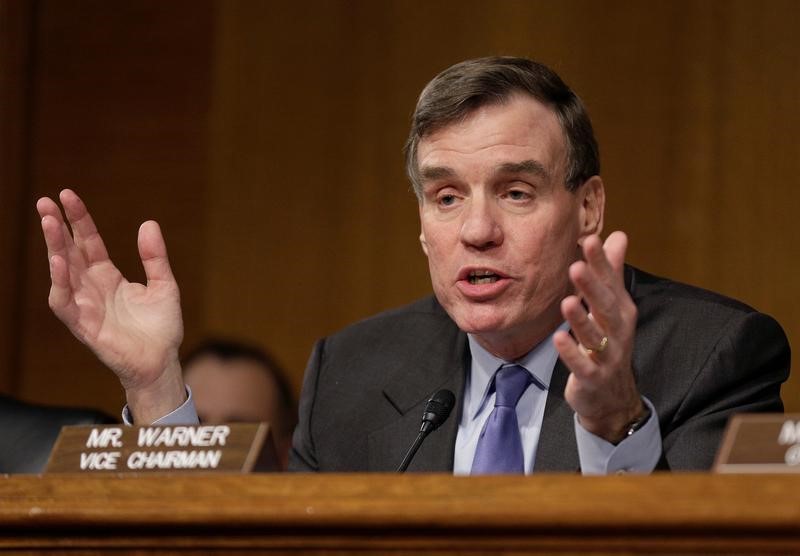By Sarah N. Lynch
WASHINGTON (Reuters) - A bipartisan pair of lawmakers on the U.S. Senate Banking Committee are planning to introduce a bill that aims to entice private corporations to give their employees larger equity stakes in their companies and promote longer-term investing.
The draft bill, titled the "Encouraging Employee Ownership Act," is being rolled out by Virginia Democrat Mark Warner and Pennsylvania Republican Pat Toomey and will be made public as soon as Thursday, according to a spokeswoman for Warner's office.
The measure comes at the same time that the U.S. Securities and Exchange Commission is expected to shift its regulatory gears to focus more intently on ways to boost capital formation more broadly.
Critics have said the SEC has in the past neglected this mission, as the number of initial public offerings have fallen while the number of regulatory requirements placed on companies has increased.
Wall Street deal-making attorney Jay Clayton, who was nominated by President Donald Trump to serve as chairman of the SEC, is expected to make capital formation a centerpiece of his tenure.
He is still awaiting his confirmation hearing before the Senate Banking Committee, and a date has not yet been announced.
The bill that Warner and Toomey plan to unveil, which has been endorsed by the private supermarket chain Wegmans, would amend an SEC rule that governs how private companies give stock options and other equity awards to their employees.
The rule exempts private companies from being required to register their securities with the SEC - a lengthy and expensive undertaking. However, in order to qualify for the exemption, companies must meet certain conditions.
Under the rule, if a company collectively grants more than $5 million in stock awards to its employees during a one-year period, then certain disclosure requirements are triggered - including the need to produce financial statements that are prepared in accordance with U.S. accounting rules.
The $5 million trigger was set in 1988, and has not been updated or pegged to inflation, Warner's spokeswoman said.
Under the proposed legislation, the threshold would be increased to $10 million before triggering disclosure obligations.
Additionally, the amount would be automatically indexed to inflation every five years.

The bill comes at a time when Congress is expected to take up legislation to loosen rules believed to stifle economic growth. This committee is expected to play a crucial role in helping craft such legislation.